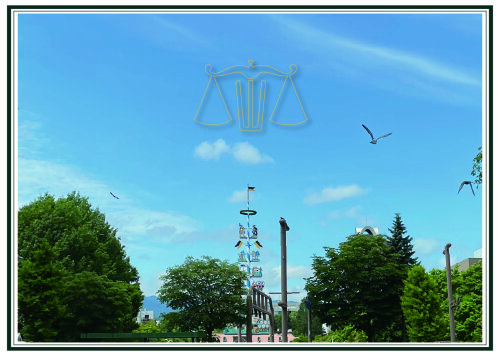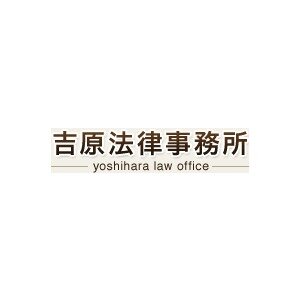Best Property Damage Lawyers in Sapporo
Share your needs with us, get contacted by law firms.
Free. Takes 2 min.
List of the best lawyers in Sapporo, Japan
About Property Damage Law in Sapporo, Japan
Property damage law in Sapporo, Japan, encompasses regulations and statutory provisions that govern the responsibilities and liabilities associated with damage to personal or real property. This includes damage caused by accidents, negligence, or intentional acts. In Japan, these cases are often adjudicated through civil lawsuits, where the aggrieved party seeks compensation for the repair or replacement of damaged items, as well as associated losses. Criminal charges can also apply in cases of vandalism or deliberate destruction. As a part of Hokkaido Prefecture, Sapporo follows the national laws of Japan, but local ordinances can also be relevant.
Why You May Need a Lawyer
Individuals may require legal help in cases of property damage for several reasons. You might need a lawyer to navigate insurance claims, especially if the insurance company disputes your claim or offers an inadequate settlement. Legal assistance may also be necessary if you intend to file a civil lawsuit to recover damages or defend against one. Disputes with neighbors or other entities over property damage responsibility or costs, interpreting contractual terms related to property damage, and understanding your rights in situations where public construction or projects affect your property are other common scenarios requiring legal expertise.
Local Laws Overview
While the core principles of property damage law in Sapporo are consistent with broader Japanese legal principles, several key aspects may be particularly relevant. The Civil Code of Japan (民法 Minpō) lays out the general rules for liability, including cases of property damage. Under these laws, individuals or entities that cause damage through wrongful acts or negligence are typically required to compensate the victim. In Sapporo, additional local ordinances may impact property damage cases, especially regarding zoning, construction, and environmental regulations, which can affect claims and defenses in property damage disputes.
Frequently Asked Questions
What constitutes property damage under Japanese law?
Property damage is considered as any harm that affects the value, usability, or enjoyment of someone's property. This can include physical damage to a building or personal belongings, as well as loss of use or diminution in value.
How is liability determined in cases of property damage?
Liability is generally determined based on who was at fault for causing the damage. This could be due to negligent behavior, such as careless driving leading to a crash, or intentional acts like vandalism.
Are there time limits for filing a property damage claim in Japan?
Yes, there are statutes of limitations for filing claims. The specific time limits can vary based on the nature of the claim, but typically, a claim should be filed within a few years from when the damage occurred or was discovered.
What should I do if my property has been damaged?
First, document the damage thoroughly with photographs and written descriptions. Report the incident to the police if necessary, inform your insurance company, and contact a lawyer to understand your legal options.
Can I seek compensation for indirect damages such as loss of business?
Potentially, yes. Compensation for indirect losses, including loss of business or income, can be recovered if you can prove that these losses were a direct result of the property damage.
How is the amount of compensation determined?
Compensation amounts are typically based on the cost of repairs, replacement value of damaged property, and any additional losses directly associated with the damage.
What role does insurance play in property damage cases?
Insurance can cover some or all of the costs associated with property damage, depending on the terms of the policy. However, disputes often arise regarding coverage, and a lawyer can help negotiate with the insurance company.
How can I prove that someone else is responsible for property damage?
Evidence such as witness statements, video footage, expert testimony, and the demonstration of negligence or violation of laws can help prove liability in a property damage case.
What if the property damage was caused by a natural disaster?
In cases of natural disasters, compensation might be available from insurance companies or through government disaster relief programs. Liability for damage typically does not apply unless inadequate preparations or maintenance by a responsible party contributed to the damage.
Can a lawyer help me if I'm being wrongfully accused of causing property damage?
Yes, legal representation is critical if you are being wrongfully accused. A lawyer can help you gather evidence to refute the claims and represent you in court if necessary.
Additional Resources
For individuals in Sapporo, resources such as the Sapporo Bar Association can provide legal referrals and support. The Japan Legal Support Center (Houterasu) offers assistance with legal issues, including property damage. The Financial Services Agency and the Consumer Affairs Agency can be useful for insurance-related issues.
Next Steps
If you need legal assistance with a property damage issue in Sapporo, consider taking the following steps: contact your insurance company to report the damage, gather evidence of the damage and any information about potential causes or responsible parties, consult with a local attorney specializing in property damage law to get tailored advice, and explore mediation as a possible alternative to litigation to resolve disputes. Your lawyer can guide you through each of these steps and work with you to achieve the best possible outcome.
Lawzana helps you find the best lawyers and law firms in Sapporo through a curated and pre-screened list of qualified legal professionals. Our platform offers rankings and detailed profiles of attorneys and law firms, allowing you to compare based on practice areas, including Property Damage, experience, and client feedback.
Each profile includes a description of the firm's areas of practice, client reviews, team members and partners, year of establishment, spoken languages, office locations, contact information, social media presence, and any published articles or resources. Most firms on our platform speak English and are experienced in both local and international legal matters.
Get a quote from top-rated law firms in Sapporo, Japan — quickly, securely, and without unnecessary hassle.
Disclaimer:
The information provided on this page is for general informational purposes only and does not constitute legal advice. While we strive to ensure the accuracy and relevance of the content, legal information may change over time, and interpretations of the law can vary. You should always consult with a qualified legal professional for advice specific to your situation.
We disclaim all liability for actions taken or not taken based on the content of this page. If you believe any information is incorrect or outdated, please contact us, and we will review and update it where appropriate.










